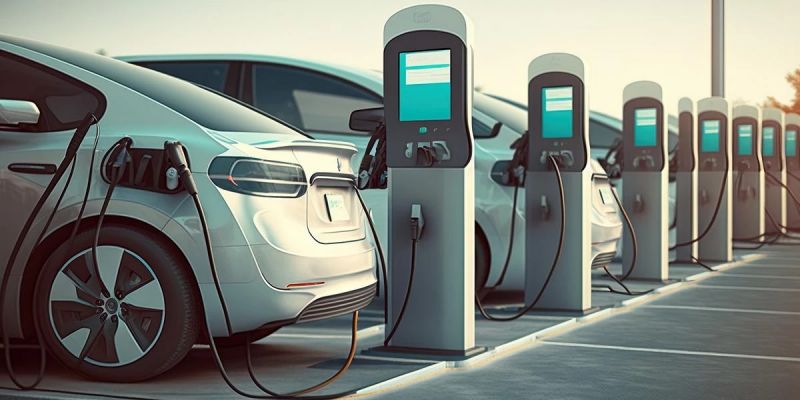The debate between electric cars and gas-powered cars has been going on for years, with compelling arguments made by both sides. Each type of vehicle has its own advantages and disadvantages, and understanding these can help consumers make an informed decision when choosing a new vehicle. In this article, we’ll compare the pros and cons of electric and gas-powered cars to provide a comprehensive overview of both options.
Advantages of electric cars
One of the most significant advantages of electric vehicles is their environmental friendliness. Electric vehicles have zero exhaust emissions, reducing air pollution and greenhouse gas emissions. This makes them a more sustainable and environmentally friendly option compared to gas-powered cars that release harmful pollutants into the atmosphere.
Another advantage of electric vehicles is lower operating costs. Electricity is generally cheaper than gasoline, so EV owners have lower fuel bills. Additionally, electric vehicles have fewer moving parts than traditional internal combustion engine vehicles, reducing maintenance and repair costs over time.
Additionally, electric vehicles offer a smoother and quieter driving experience. Electric vehicles feature instant torque and no engine noise, providing passengers with a quieter and more enjoyable ride. This results in a more comfortable and relaxing driving experience, especially in urban environments.
Disadvantages of electric cars
Although electric vehicles have many advantages, there are also some disadvantages. One of the main concerns among consumers is the limited range of electric vehicles. While advances in battery technology have expanded the range of electric vehicles, they still generally have shorter ranges than their gasoline-powered counterparts. This can be a significant limitation for long-distance travel or areas with limited charging infrastructure.
Charging infrastructure is another potential disadvantage of electric vehicles. While the network of charging stations is expanding, it's not as widespread as gas stations, and charging times can be longer than refueling with a traditional car. This can be an inconvenience for drivers who rely on their vehicles for long commutes or frequent trips.

Advantages of oil trucks
Fuel vehicles, or traditional internal combustion engine vehicles, have their own set of advantages. One of the major benefits of petroleum vehicles is their well-established infrastructure. Gas stations are everywhere, allowing drivers to conveniently refuel their vehicles almost anywhere. This extensive infrastructure provides oil truck owners with a sense of security and convenience.
Additionally, gas-powered vehicles typically have longer driving range and faster refueling times than electric vehicles. This makes them more suitable for longer journeys and reduces the need for frequent stops to recharge.
Disadvantages of oil trucks
On the other hand, fuel vehicles also have some disadvantages, especially in terms of their impact on the environment. The combustion of gasoline and diesel in conventional vehicles causes air pollution and carbon emissions, adversely affecting public health and the environment.
Additionally, operating costs for gas-powered vehicles are typically higher due to rising gasoline costs and regular maintenance requirements. As fuel prices fluctuate, the long-term costs of owning and operating a gas-powered vehicle can be unpredictable and potentially burdensome for consumers.
in conclusion
All in all, both electric vehicles and fuel vehicles have their own advantages and disadvantages. Electric vehicles offer environmental benefits, lower operating costs and a quieter driving experience, but they can have limitations in terms of range and charging infrastructure. On the other hand, gas-powered cars have good infrastructure, longer range and faster refueling times, but they cause air pollution and are more expensive to operate.
Ultimately, the choice between electric and gas-powered vehicles comes down to personal preference, driving habits and environmental considerations. As technology continues to advance and infrastructure improves, electric vehicles are becoming an increasingly viable and attractive option for consumers looking to reduce their environmental footprint and save on operating costs. However, for those who prioritize convenience and long-distance travel, gas trucks remain a practical option. By weighing the pros and cons of each option, consumers can make informed decisions that align with their needs and values.
Post time: Mar-15-2024







